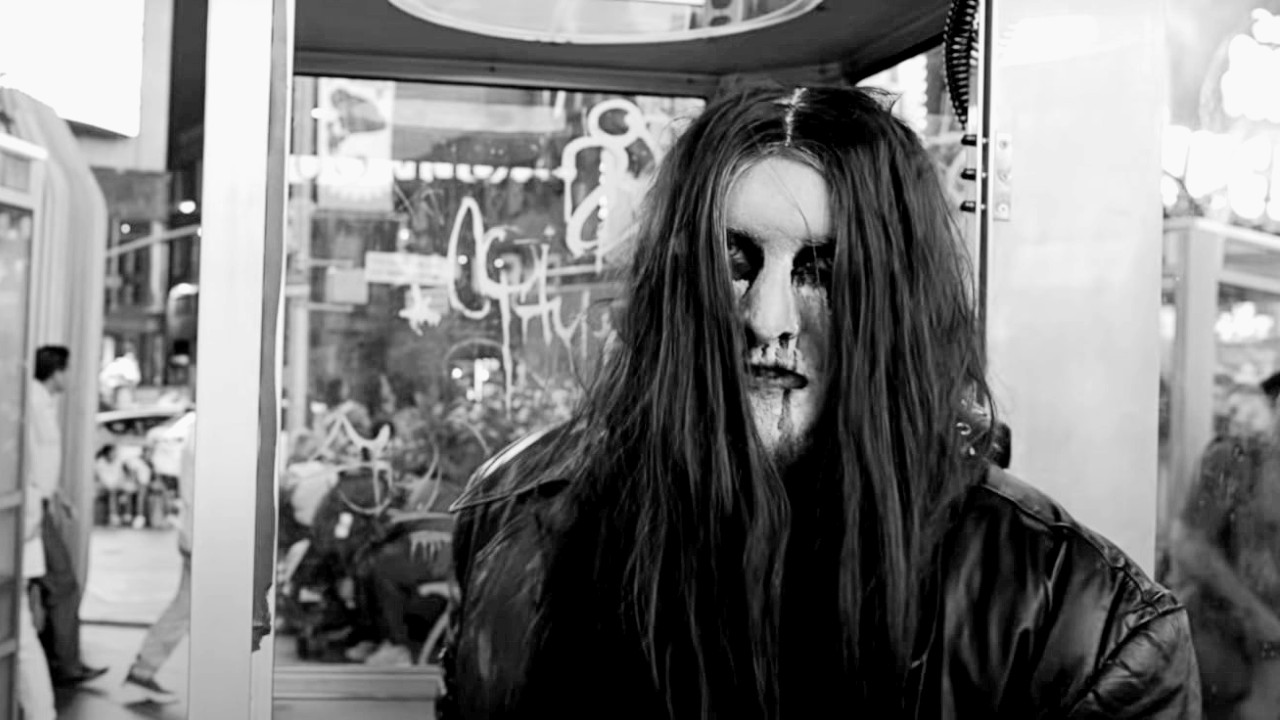Spoiler warning: the following article contains spoilers for Netflix documentaries Crime Scene: The Vanishing At The Cecil Hotel and Don't Fuck With Cats
Imagine something: you wake one morning and reach for your phone. Your notifications have blown up overnight; people have desperately been trying to reach you. Your mind races – has something happened? Is everyone okay? You tap open the same news story that has been forwarded to you dozens of times, and you’re met with a familiar image. The picture is of you, and the story is reporting that you’re the lead suspect in an international murder investigation.
What would you do? What can you do when you’ve been implicated in the murder of a person you’ve never even met? Do you hope it’ll all just blow over, or do you rush to the authorities to try to clear your name? You’d probably be hopeful that your innocence would be enough to protect you, but that’s not always the case. And a formal conviction isn’t the only way to ruin someone’s life.
When Elisa Lam went missing in 2013, it sparked a manhunt that dominated headlines and news cycles for weeks. Lam was a 21-year old student from Vancouver who, craving independence and adventure, mustered the courage to book a solo trip to America. Her intentions were pretty typical of any student heading out travelling: she wanted to see the world and find herself in it. Working her way up the West Coast, she soon landed in LA and checked into the Cecil Hotel. It was the last place she would be seen alive.
For those in the know, the Cecil had a reputation. Slap bang in the middle of Skid Row, it had become notorious for its criminal clientele and dark energy. Murders, suicides, assaults and brawls were all relatively common occurrences at the hotel, which had served as a home from home for some of LA’s most-feared criminals since it opened in 1924 – including Richard Ramirez, also known as LA’s infamous Night Stalker, who used to catch his breath there between murders.
Some speculated that the hotel was cursed; possessed by a malevolent force that drew in LA’s most nefarious characters. Paranormal or not, it was a dangerous place to wind up. But much as the Cecil Hotel had a reputation with locals and regulars, to Lam – and many of the other young tourists who used it as a base – it was just a cheap place to call home for a few nights.
In the end, the police findings around Lam’s strange death – which is the subject of new Netflix documentary Crime Scene: The Vanishing At The Cecil Hotel – were pretty cut and dry: Lam had stopped taking the medication she needed to manage her bipolar disorder and had a psychotic episode as a result, during which she climbed into a water tank on the hotel’s roof and drowned. But when Lam first disappeared, speculation was feverish – and the longer the case remained a mystery, the more far-fetched the theories about what had happened to her became. A turning point in the case came when the LAPD made the mistake of releasing a video of Lam’s final moments, filmed in a hotel elevator, as an appeal for information. The video was unsettling enough to catch the attention of a community of web sleuths, and the case exploded.
The concept of a web sleuth is something you might be familiar with if you’ve seen Netflix documentary Don’t Fuck With Cats. The series follows the story of a group of online amateur detectives who band together in the hopes of finding the person behind a series of disturbing YouTube videos in which kittens are graphically tortured. In the process of their investigations, they manage to accidentally help bring down wanted serial killer Luka Magnotta.
What that documentary makes clear is that getting this involved in an investigation this complex, even on an amateur basis, takes a lot of time – hours a day, for weeks or even months at a time. Web sleuths argue that they’re helping; that they’re willing to put the hours in in a way overworked police departments can’t. But if you ask the authorities, they’re generally less enthusiastic. Web sleuths, they argue, don’t have access to the evidence – autopsies, toxicology reports, bank records – they do, and they get fixated on theories with little evidence to back them up.
And when those theories gain enough momentum, they can become dangerous. It doesn’t really matter if what you’re saying is true or not when you have a scapegoat and enough people willing to believe you.
Enter Pablo Vergara.

Born in Mexico City, Vergara was raised in Monterrey before he embraced life as a self-professed “world traveller”. He spent some time in Europe where he had a number of bands and projects in different countries, before heading to the US, yo-yoing between coasts and eventually settling in New York where he currently resides.
His journey into metal was a familiar one. As a teenager coming of age as grunge swept the globe, Vergara picked up a guitar and started playing along to his cardigan-clad heroes. But as he became more skilled, he quickly found himself craving more of a challenge – something faster and more technical. The answer for Vergara was obvious: metal. He started out with thrash, before submerging himself fully into the genre’s more extreme corners.
Cut to 2013, and Vergara was pretty much your typical death metal musician. Going by the name Morbid, he was corpse painted to the nines and sang about all the things you want a death metal musician to sing about: blood, misery, murder. With his band Slitwrist he delighted in ‘I’m going to rip your heart out and eat it for dinner’ theatrics – and he was good at it, too.
For Vergara, Morbid was never anything more than a fiction; an “alter-ego”. He likens Morbid to a character in “any other horror film – my intention was to shock people”. Still, he now admits that for a while, he perhaps let the lines between the the person and the persona blur a little too freely. “The Morbid alter-ego, especially back then, was pretty apparent in my life,” he says. "I mean, really, it caused me a lot of trouble back then.”
He’s not kidding.
In February 2012, Vergara checked into the Cecil Hotel. He’d been living in Cincinnati, but was miserable there thanks to the state’s bitter winter and a “bad situation” with an ex. His friends in LA encouraged him to come and join them there. “So, one day out of the blue, I just packed my stuff,” Vergara says. “I jumped onto Amtrak, and travelled – three-day travel – looking at the beautiful scenery of America, which was awesome. I arrived straight into the Cecil.”
Vergara knew nothing of the Cecil’s reputation when he checked in there – although he quickly realised something was off. “You could tell it wasn't a regular hotel, for sure,” he says. “I mean, you'd see some shady people there.” Hoping to hook up with local friends, Vergara recorded a 40 second video from his hotel room after he arrived and uploaded it to Morbid’s YouTube channel. “I was just laying in bed and just talking to my friends, you know?” says Vergara. “I tried to reach out to people in LA like, 'I'm here,' and it was just an innocent video like that.
“But that was it, that's all they needed. That changed everything for me.”
The ‘they’ Vergara is referring to is the web sleuths who had jumped on Lam's death and, on the basis of a video uploaded a full calendar year before Lam stayed at the Cecil, decided Vergara should be considered a suspect. They’d stumbled across the video and, through his channel, discovered his music videos – among them one for a song called China, with lyrics about a victim’s body being buried in a body of water in China. As Lam was Canadian-Chinese, this was considered clear evidence of Vergara’s involvement, as was a video that depicted Morbid chasing a woman through a forest. So far, so death metal, but the damage was done. The sleuths decided that this gore-obsessed musician had some questions to answer.
Vergara was blissfully aware that this was all unfolding. After his time in LA he’d returned to Mexico, got himself a label and was putting some finishing touches on a new album, working on new music and building a fanbase. By any measure, things were going pretty well. Until one morning, when he discovered he’d been named as a key murder suspect in the Elisa Lam case by a Taiwanese news station – a case he’d never even heard about until discovering he’d been implicated in it. “That's when I heard about Elisa, right after that, when I found myself in a TV news station in Taiwan,” he says. “They took my picture, they took my videos – it was actually a pretty nice little [promo] spot.”
Vergara can laugh about it now, but at the time, his world turned upside down. “Originally, I just made fun of it with my bandmates, you know? Like, 'Oh, now they're calling me a killer, hahaha’”, says Vergara. “It was just a few people that were saying that and I didn't know the magnitude of the incident, how that was going to escalate into something uncontrollable. It didn't take too long after that for all the web sleuths and the trolls to infiltrate my life and everything I was doing. Everyday there were hundreds of people. It just multiplied. That's the power of social media, I guess.”
As more people became aware of the theories swirling around Vergara, they began stealing photos and information from his social media accounts and circulating them online. At one point, he Googled his name, and there were thousands of threads discussing his involvement in the case. He received hundreds of death threats. It took a profound toll on his mental health.
But it wasn’t just social media. While Vergara was never officially named as a suspect by the FBI, in the weeks after he appeared in the news the Mexican authorities showed up at his house to question him. Incredibly, despite no corroborating evidence, the sleuths’ theories had managed to get the attention of officials. Once they finished up their questions, they left, and Vergara never heard from them again. But the abuse continued long after they’d left – even once Lam’s death had been judged an accident.
None of the sleuths ever reached out to Vergara to have a conversation, to ask any questions, or to try to get to the bottom of his involvement. Despite their claims, it seemed like they weren’t that interested in the truth after all. “When my social media accounts started getting terminated or flagged, I started reaching out and I was like, ‘you need to stop, this is really affecting me’”, says Vergara. “To this day, I use my social media accounts for business; I sell merchandise, albums, and connect to the fans, so when this was happening, I started losing money. But they were just making fun of me when I would say this and that would encourage them to keep harassing me even more, so I didn't see an end to it. I don't know if it's the paranoia, or being self-conscious, but it took away a lot of my mental health and my peace.”
Facts didn’t seem to matter to the people contacting Vergara. Instead, it seemed like they were just enjoying having someone to mess with. “It's almost like they're trying to save someone by "destroying" someone else, and I don't find that a very honourable thing to do,” says Vergara. “They completely missed the point. Just looking at pictures online doesn't make you a detective, right? They knew I wasn't even in the country, my video on YouTube was dated 2012, and they didn’t care about that. And that's the beauty of that whole story, it's just ridiculous. I'm having trouble trying to rationalise the whole thing.”
Eventually, Vergara gave up on Morbid, and on making music altogether. “I walked away from everything, I disconnected for a while,” he says. “I went on living, did my thing, and I kind of tuned out.” With music on hold, Vergara pursued a career as a filmmaker, training at New York Film Academy. In 2019, his film Necromurder – which stars Morbid as a main character – picked up awards at international film festivals. Still, without music, something was missing. “When I went to pursue my film career professionally, I just thought maybe this is the right path right now, and I put down my guitar. It's been hard because I'm a great guitar player, and I love making music, and it's who I am. I've always felt incomplete after that.”
We’re often told to ignore online abuse when it happens; to not ‘feed the trolls’, but that advice doesn’t consider how hard something like this is to live with. For Vergara, it overwhelmed him and cost him his main source of expression. This is something Vergara thinks we need to talk about more: the very real effects abuse like this has on its victims. “With cyber bullying, the effect that it has on the mental wellbeing of the victim is only highlighted when it’s too late, and when somebody takes their own life. I've been doing research and a lot of people from all walks of life, they end their lives because of cyber bullying. It doesn’t matter if you're rich or famous or not.
“It's something we really need to look into and talk with our friends and our kids about, especially in schools, because fifty two percent of teens get cyber bullied – that's an alarming percentage.”
Vergara’s experiences have encouraged him to tackle the issue of online harassment directly. “I have a team and we have some plans,” he says, explaining that he's working with experts to help raise awareness of the issue.
He’s also finally ready to give music another shot. “I found a line-up in New York and we're working on new music. I really missed it a lot.” The band he’s working with? Slitwrist. “That’s actually the band they used back in the day to implicate me, the songs that we had, the lyrics,” Vergara says. “They pretty much destroyed that band. So just as a way of counterattacking them, we resurrected the band. Like, ‘You're not gonna stop us!’” Being reunited with Slitwrist has stirred up a lot of feelings. “It’s actually brought a lot of rage,” he says. “You know, I'm pissed off because of the whole thing, which actually helps when you're making metal music.”
After seven years, Vergara has finally started his healing process, and feels like he might just be finding a bit of closure from the whole ordeal. “I’m going through the motions, day by day, but it feels like it's heading in that direction,” he says, “Much needed, because seven years of being in limbo, you know, it was pretty bad. I'm still impressed that things are starting to work out in my favour.
“The music is fantastic and we're in the studio now, so it’s a bit of a closure for sure.”
Crime Scene: The Vanishing At The Cecil Hotel is available to watch via Netflix now. Slitwrist are currently working on a new album – more information is available on their official website. Netflix would like to make clear that none of the web sleuths interviewed for the documentary were involved in the harassment of Pablo Vergara.

